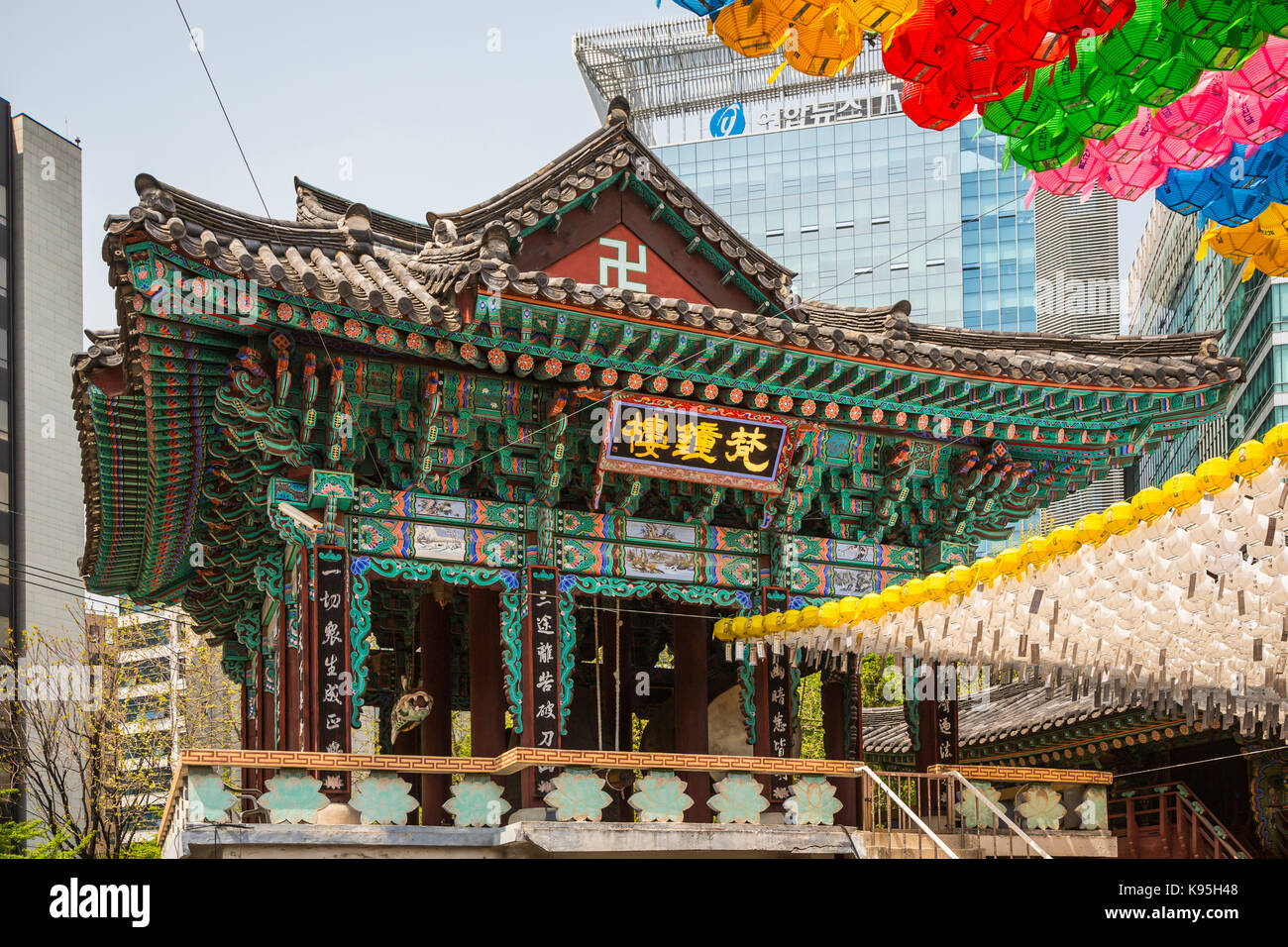
The colorful Jogyesa Buddhist Temple in Seoul, South Korea, Asia Stock Photo Alamy
Jogyesa Temple is located in central Seoul and it is one of Korea's major Buddhist temples. The temple also serves as headquarters for the Jogye Order of Korean Buddhism, the largest sect of Korean Buddhism.

The colorful Jogyesa Buddhist Temple in Seoul, South Korea, Asia Stock Photo Alamy
1 Comment If you're looking for the serenity and calm surroundings of most Buddhist temples set high up in the mountains outside of Seoul, Jogyesa Temple (조계사) is not for you. Right down in the center of the city where all of the daily hustle and bustle that makes Seoul famous occurs, sits a temple with more than 100 years of history.

DosyaSeoulBuddhist.templeJogyesa01.jpg Vikipedi
This beautiful, colorful temple is the center of Zen Buddhism in Korea. Equally lovely is the courtyard, which is filled with vibrant lanterns and trees more than 500 years old. Duration: 1-2 hours Suggest edits to improve what we show. Improve this listing Tours & experiences Explore different ways to experience this place. See options

JogyesaTempel in Seoul, Südkorea Redaktionelles Stockfoto Bild von leute, palast 83308403
Jogyesa Buddhist Temple, located in the heart of Seoul, South Korea, is one of the most prominent and significant Buddhist temples in the country. As the headquarters of the Jogye Order, the largest Buddhist sect in Korea, it serves as a spiritual and cultural center for Buddhists and a popular destination for visitors seeking a glimpse into.

Jogyesa Buddhist temple, Seoul.... Korea travel, Seoul korea, Seoul
Jogyesa (Korean: 조계사; lit. Jogye Temple) is the chief temple of the Jogye Order of Korean Buddhism.The building dates back to the late 14th century and became the order's chief temple in 1936. It thus plays a leading role in the current state of Seon Buddhism in South Korea.The temple was first established in 1395, at the dawn of the Joseon Dynasty; the modern temple was founded in 1910.
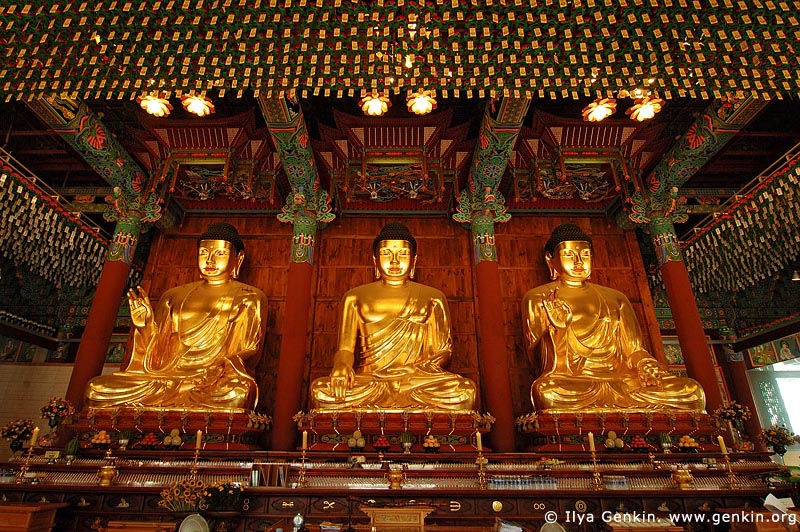
Three Golden Buddha Statues Inside Jogyesa Temple in Seoul, South Korea Photos, Gyeonjidong
Established in 1910, Jogyesa was the first Buddhist temple to be built within the fortress walls of Seoul - a milestone for Buddhism, which had been persecuted for five centuries by Confucian.

Jogyesa Temple, a Buddhist Monastery. General View of the Building Editorial Photography Image
Jogyesa is the temple of Korean Buddhism. The temple is located in central Seoul, and that have easy access from many tourist areas. The temple has 2 days 1 night temple stay program. They hold another two hours temple stay event without charge for the foreign visitors. You make sure to register at least one weeks in advance.

Jogyesa Temple in Seoul, South Korea Editorial Image Image of 1936, famous 83308370
Contact. Phone: +82-2-768-8523 (English) or +82-2-768-8660 (Korean) Website: Jogyesa website (Korean/English) / Temple Stay. Instagram: @jogyesa_templestay. It's very rare to find a temple in a bustling part of a big city in South Korea. Jogyesa Temple sits in Jongno, one of the busiest areas in Seoul, the Capital City of South Korea, and is.

(Corée du sud) Jogyesa Temple (Séoul) Seoul Attractions, Travel Tracker, Ancient Korea, Visit
Temple History Jogyesa Temple is located in Jongno, Seoul. The name of Jogyesa Temple might sound familiar. It's the headquarters to the largest Buddhist Order in Korea: the Jogye-jong Order. Jogyesa Temple has a bit of a unique history. The original building that took up residence at Jogyesa Temple was actually transferred from a temple called Gakhwangsa Temple in neighbouring Susong Park.
Jogyesa Temple
Jogyesa Temple. Jogyesa Temple was built in 1910. It is the head of the Korean Buddhist Jogye Order. In 2010 the temple celebrated it's 100 year anniversary. The temple is unique in that it is located in the heart of Seoul. The first thing you notice upon entering the grounds of the temple are the two huge trees. Both Trees are over 500 years.
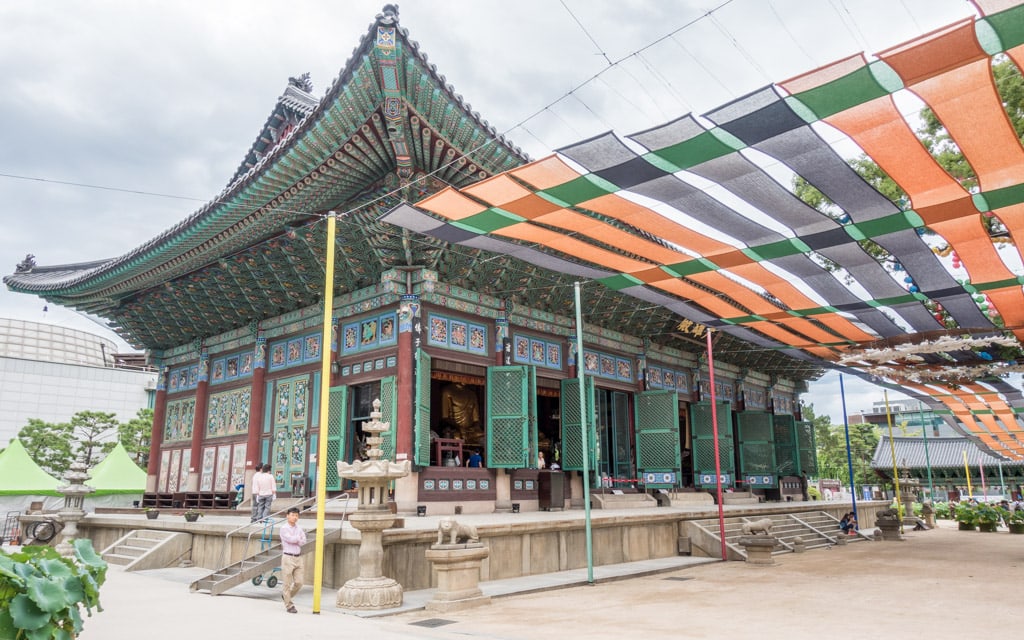
Jogyesa Buddhist Temple Views In Downtown Seoul, South By Joan Photo Stock StudioNow lupon.gov.ph
From the moment you pass through the iljumun, or the One Pillar Gate, and walking past the smiling stone Buddha before reaching the Daeungjeon, or the Daeungjeon Hall, you can immediately feel Jogyesa Temples cool and laid-back atmosphere. And at the other end of the grounds, the ten-story octagonal stupa is usually surrounded by people praying.
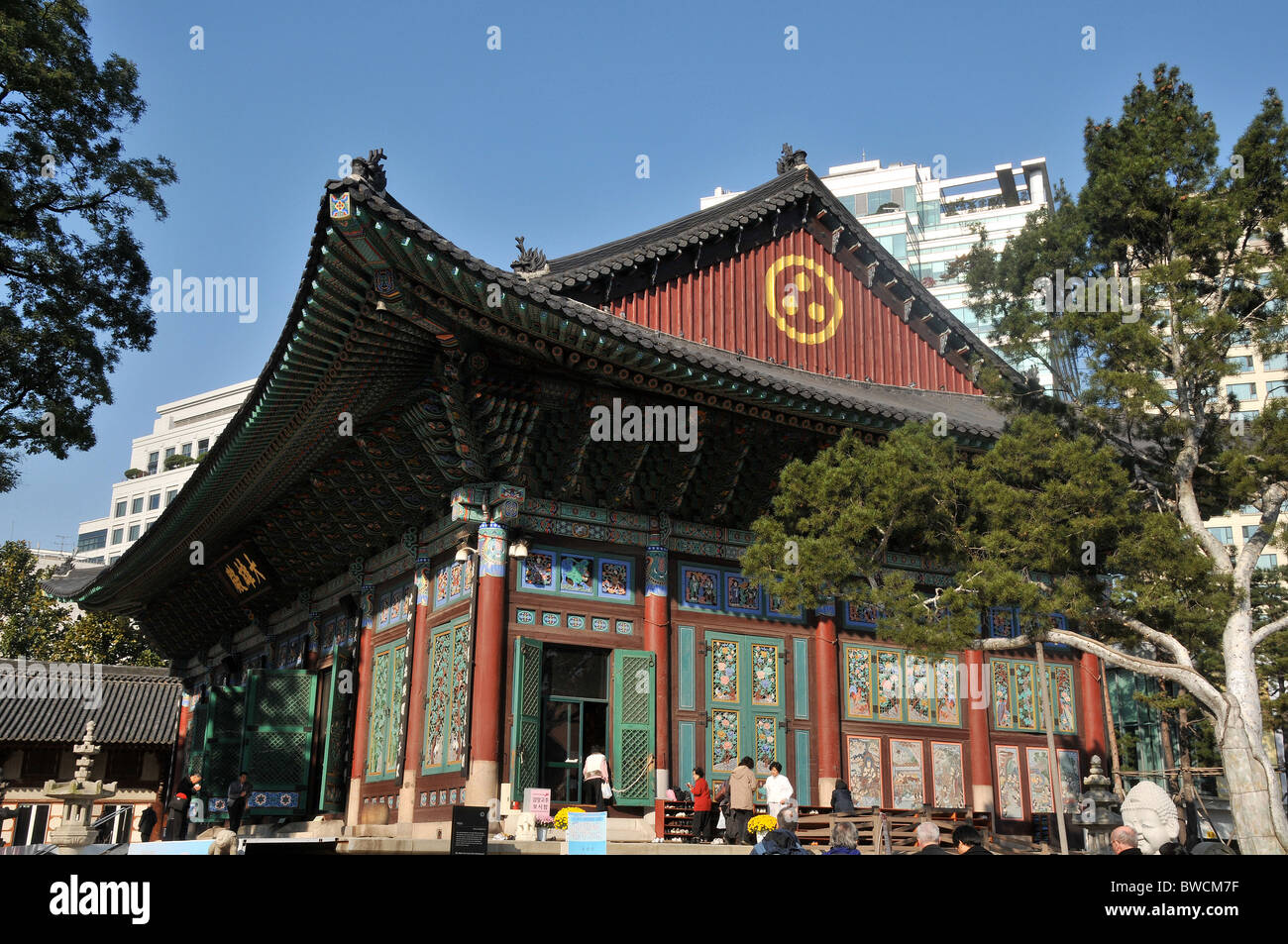
Hall of the Great Hero or Daeung jeon at Jogyesa Buddhist Temple Seoul South Korean Stock Photo
Introduction to Temple Jogyesa Temple is located in Jong-no, Seoul. The name of Jogyesa Temple might sound familiar. It's the headquarters to the largest Buddhist Order in Korea: the Jogye-jong Order. Jogyesa Temple has a bit of a unique history. The original building that took up residence at Jogyesa Temple was actually transferred from a temple named Gakhwangsa Temple in neighbouring.
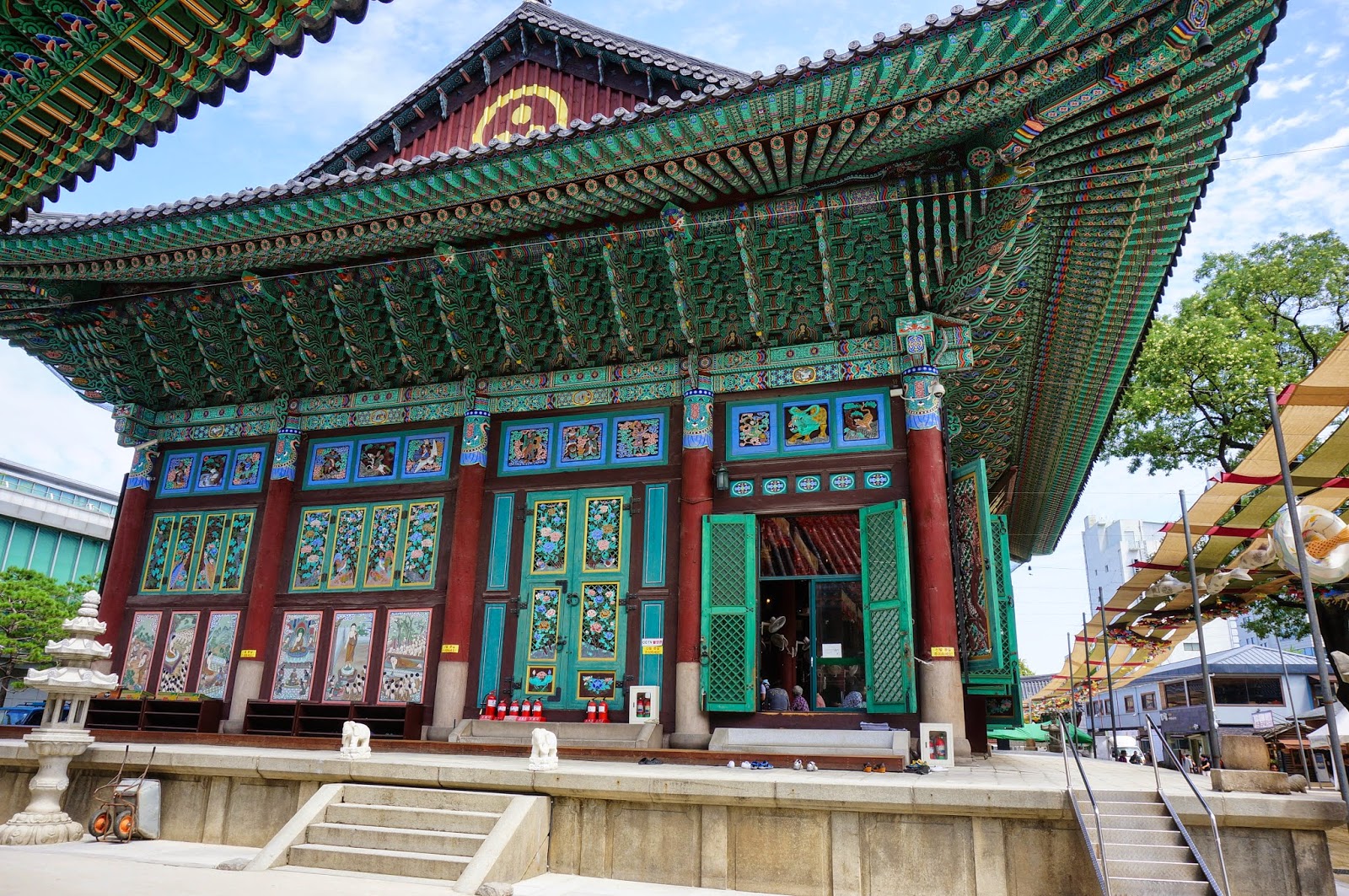
Independent Me !!! Jogyesa Temple Visit
Jogyesa Temple is the representative temple of Korean Buddhism, as it is the chief temple of the largest denomination in Korean Buddhism, the Jogye Order.
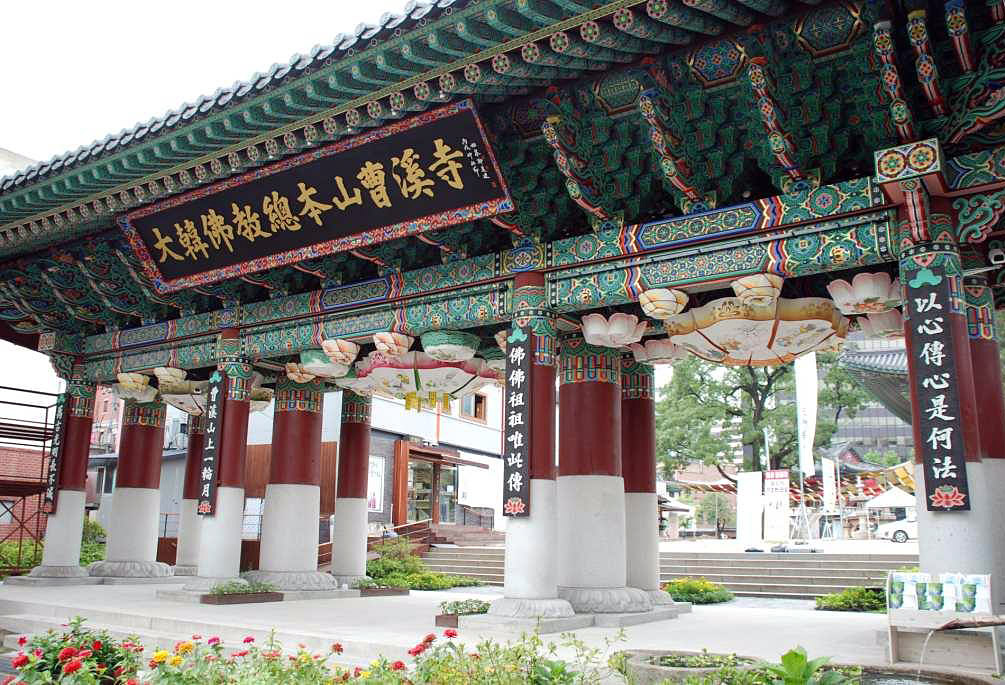
Jogyesa Buddhist Temple, Seoul Jogyesa Temple Travel Photos, Images & Pictures of Jogyesa Temple
Jogyesa Temple is one of the main Buddhist temples in Korea. The temple is the district head temple of the Jogye order (the largest sect of Korean Buddhism), hence known as the temple that symbolizes Korean Buddhism.
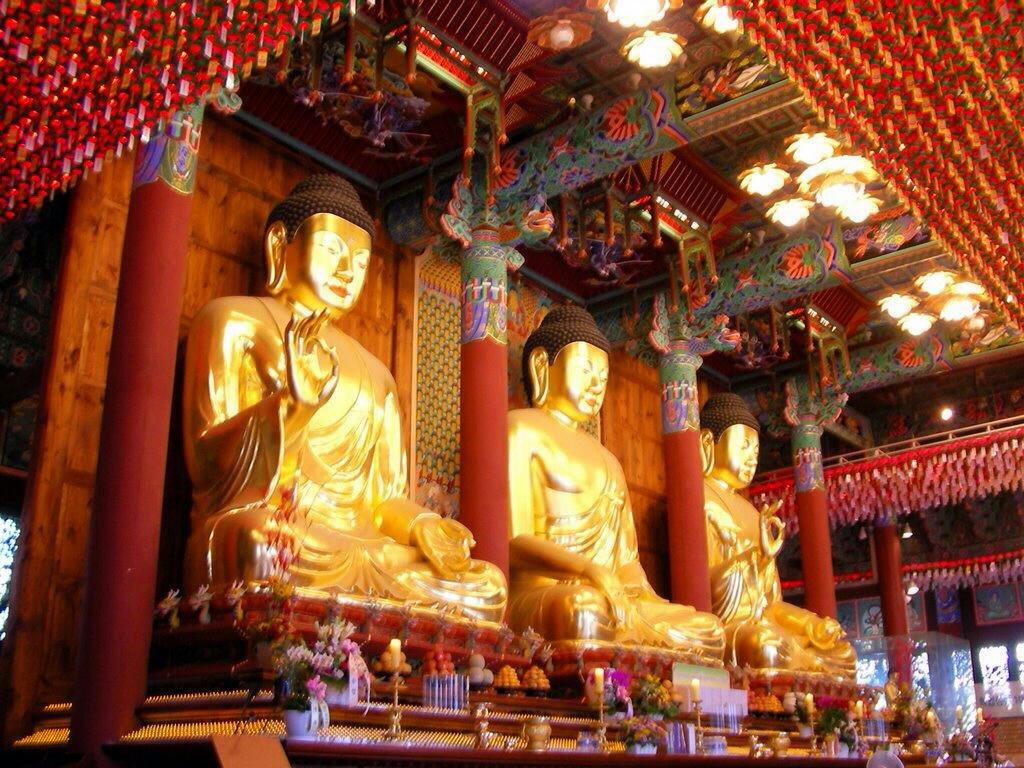
Turismo Jogyesa Temple El color de la tradición coreana AsiaStage
Amidst its modernity, Jogyesa Temple stands as a serene oasis, preserving the essence of Korean Buddhism. As you enter the temple gates, you'll be captivated by the kaleidoscope of colours, with.

Pin on Korean Culture
As the main temple as well as the district head temple of Jogye order in Seoul, Jogyesa Temple is the center of Korean Buddhism. The temple was built in the late 14th century during the Goryeo period and was once turned into ashes due to fire and was rebuilt under the name of Gackhwangsa Temple in 1910 with the effort of many respectful monks, namely Han Yong-un and Lee Hee-gwang.